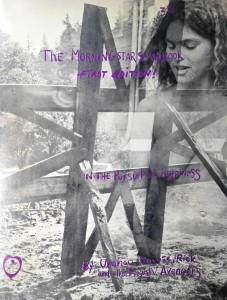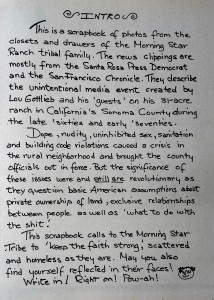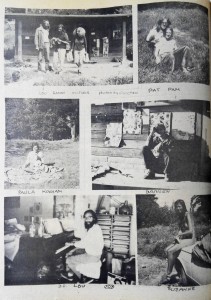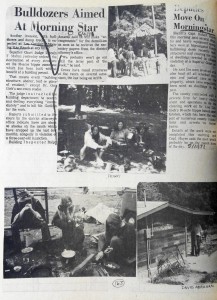This post is part of an ongoing series featuring items recently cataloged from the Julio Mario Santo Domingo Collection.
Free love and communal living dominated the Counterculture Movement throughout the United States, nowhere as widespread as in San Francisco, California. Young people fled to the Haight-Ashbury district in the late 1960s and early 1970s, seeking to escape capitalism and the Vietnam War, changing American society in the process. In 1966, word in the Haight spread that a “Digger ranch” was forming further north in Sonoma County. Folk musician Lou Gottlieb had purchased land in the area, and was offering to share the land to any and all people interested in a communal lifestyle.
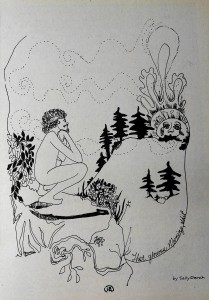
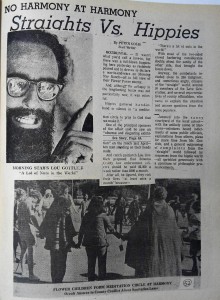
The Morning Star commune existed in Sonoma County from 1966 to 1973, at one point housing over 100 people on the 31-acre property. Residents of the commune called their lifestyle choice “voluntary primitivism.” They committed to growing their own organic food, much of which was sent to the Diggers in San Francisco. Residents practiced free love and often roamed the land in the nude, prompting various complaints from their neighbors. A 1967 Time Magazine article about the commune led to a population boom, and drew the attention of local authorities.
Beginning in 1967, local authorities began searching and raiding the property, sending Gottlieb cease and desist orders, citing unsafe and unsanitary living conditions. Allegedly, federal authorities also began visiting the commune, searching for draft evaders. For the next several years, Gottlieb and the other residents of Morning Star would repeatedly face shut downs, including the bull dozing of their shelters in 1971.
After half a decade of fighting for the open land movement, Gottlieb abandoned Morning Star for India. He deeded the property to “God,” a final act which would go all the way to the state Supreme Court and cost Gottlieb nearly all of his life savings. The courts would finally deciding that deeding land to a higher power was impossible, especially considering no one would be available to pay property taxes.
To learn more, The Morning Star scrapbook:’n the pursuit of happiness can be found in Widener’s collection: Occidental, California: Friends of Morning Star, 1973.
Thanks to Irina Rogova, Santo Domingo Library Assistant, for contributing this post.

